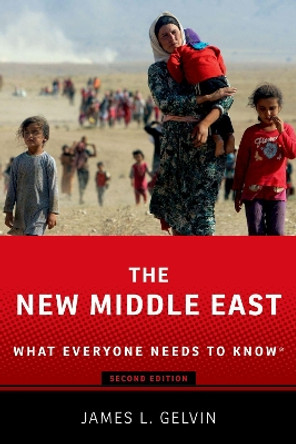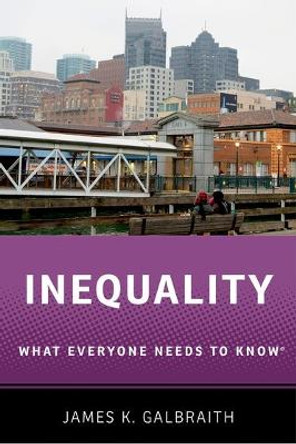Beginning in December 2010 popular revolt swept through the Middle East, shocking the world and ushering in a period of unprecedented unrest. Protestors took to the streets to demand greater freedom, democracy, human rights, social justice, and regime change. What caused these uprisings? What is their significance? And what are their likely consequences? In an engaging question-and-answer format, this updated edition of The Arab Uprisings: What Everyone Needs to Know (R) explores all aspects of the revolutionary protests that have rocked the Middle East. Historian James Gelvin begins with an overview, asking questions such as: What sparked the Arab uprisings? Where did the demands for democracy and human rights come from? How appropriate is the phrase "Arab Spring"?--before turning to specific countries around the region. Shifting the emphasis from the initial upheaval itself to the spinning out of the revolutionary process, Gelvin looks at such topics as the role of youth, labor, and religious groups in Tunisia and Egypt and discusses why the military turned against rulers in both countries. Exploring the uprisings in Libya and Yemen, Gelvin explains why these two states are considered "weak," why that status is important for understanding the upheavals there, and why outside powers intervened in Libya but not in Yemen. This second edition looks more closely at the situation of individual countries affected by the uprisings. Gelvin compares two cases that defied expectations: Algeria, which experts assumed would experience a major upheaval after Egypt's, and Syria, which experts failed to foresee. He then looks at the monarchies of Morocco, Jordan, and the Gulf, exploring the commonalities and differences of protest movements in each. Reconsidering the possible historical significance of the uprisings Gelvin explores what this means for the United States and Iran. Has al-Qaeda been strengthened or weakened? What effects have the uprisings had on the Israel-Palestine conflict? What conclusions might we draw from the uprisings so far? What Everyone Needs to Know (R) is a registered trademark of Oxford University Press.
About the AuthorJames L. Gelvin is Professor of Modern Middle Eastern History at the University of California, Los Angeles. He is the author of The Modern Middle East: A History and The Israel-Palestine Conflict: One Hundred Years of War.
ReviewsA remarkably readable, informative, slim volume...Of particular worth is James Gelvin's ability to show how the protests are interlinked, yet also independent of each other. Brief forays into the Palestinian/Israeli conflict and the current state of al-Qaeda are also illuminating...an excellent primer for the general reader. * Publishers Weekly *
This impressive achievement brings together a vast amount of information in a lucid manner. Highly recommended. * Library Journal *
A solid primer on the Arab Spring...[Gelvin's] background on the Arab world will certainly help non-experts better understand the region...A useful attempt to understand a still-unfolding story. * Kirkus Reviews *
Highly recommended...Gelvin's claim to provide "what everyone needs to know" does not unduly exaggerate the usefulness of the book for students and other nonspecialists. Even specialists in contemporary Arab affairs will benefit in some ways, notably by using it as a model in their own teaching and general writings. * CHOICE *
James Gelvin has throughout his career explained to us the role of popular demonstrations and symbolic action in the modern Middle East. There could be few more expert guides for the public to the remarkable Arab uprisings of 2011. Gelvin avoids easy answers for the hard one, and never prefers simple theory to complex realities. * Juan Cole, Richard P. Mitchell Collegiate Professor of History, University of Michigan *
Book InformationISBN 9780190222758
Author James GelvinFormat Paperback
Page Count 224
Imprint Oxford University Press IncPublisher Oxford University Press Inc
Weight(grams) 272g
Dimensions(mm) 137mm * 208mm * 15mm







